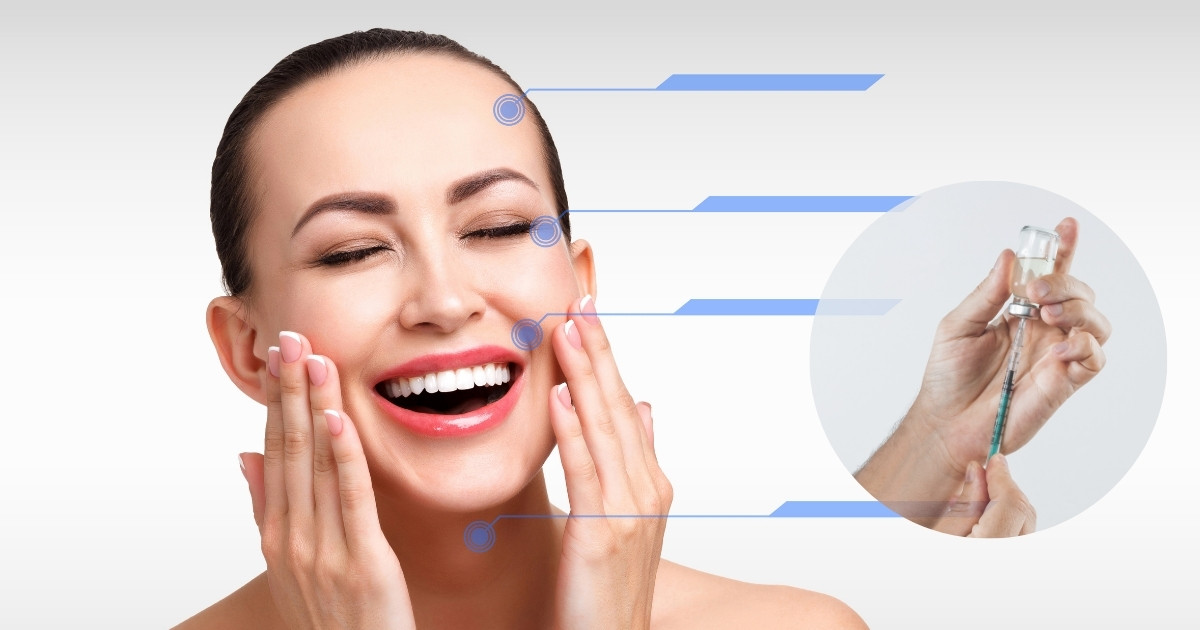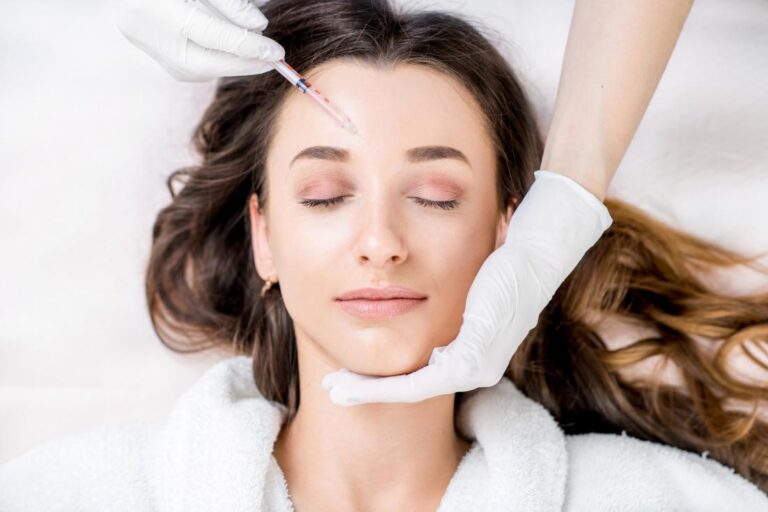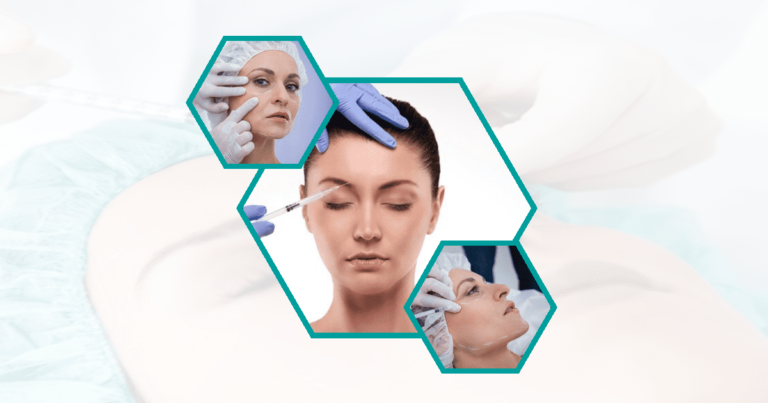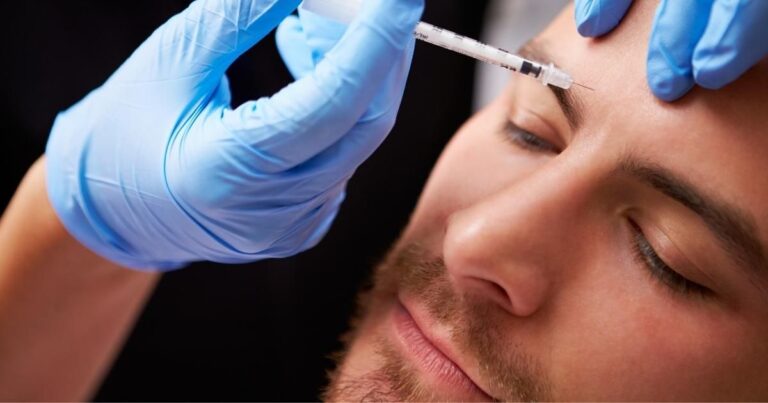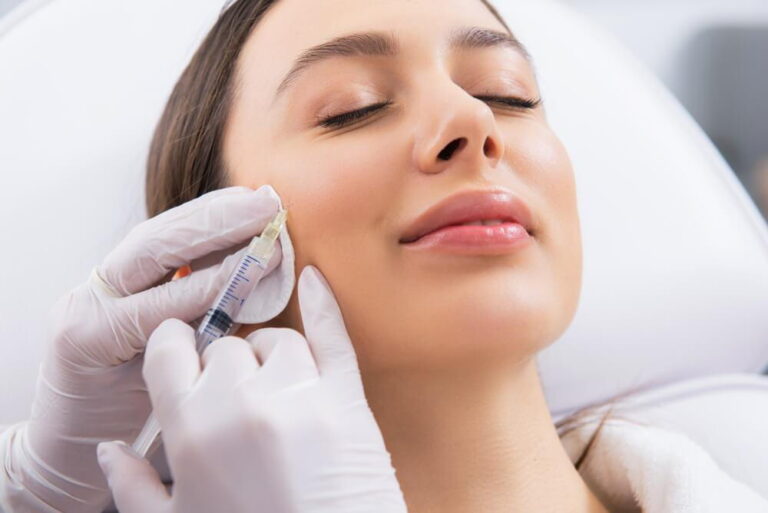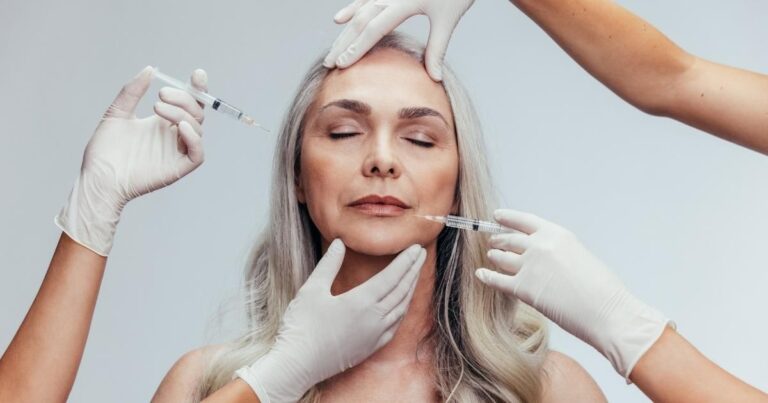Exploring the potential of Botox in Dubai as a solution for facial aesthetics, this piece addresses the core question: Can Botox remove smile lines?
Botox, primarily used to treat dynamic wrinkles caused by muscle movements, may not be the first choice for smile lines, which are often static. However, strategically placed Botox injections can soften the appearance of these lines by relaxing the surrounding muscles. It could prevent the deepening of these lines over time, especially when combined with other treatments.
- Understanding Smile Lines: Smile lines, or nasolabial folds, are primarily static lines that form with age.
- Botox’s Mechanism: Botox temporarily paralyses muscles, which may not directly address static lines.
- Alternative Treatments: Dermatologists often suggest fillers in Dubai over Botox for smile lines.
- Preventive Use: Early use of Botox may prevent the deepening of lines.
- Complementary Strategies: Botox can be part of a broader anti-ageing regimen.
- Custom Approaches: Each individual may require a tailored approach to treating smile lines.
How Botox Targets Smile Lines: The Procedure Explained
Botox functions by temporarily paralysing the muscles that contribute to forming smile lines, resulting in a smoother appearance. The procedure involves injecting a small amount of botulinum toxin into the muscles around the mouth and cheeks. As the muscles relax, the skin appears less creased, and smile lines diminish.
| Step | Description | Duration | Notes |
| 1 | Consultation and assessment | 15-30 min | Determining suitability for Botox treatment |
| 2 | Facial mapping | 10 min | Identifying injection sites |
| 3 | Cleaning and preparation | 5 min | Ensuring a sterile environment |
| 4 | Botox injection | 10-15 min | Administering Botox to targeted areas |
| 5 | Monitoring and post-injection care instructions | 10 min | Providing aftercare advice |
| 6 | Follow-up appointment scheduling | 5 min | Planning for assessment of results |
This table outlines the steps involved in a typical Botox procedure targeting smile lines. The process begins with a consultation to determine the suitability of the treatment, followed by facial mapping to pinpoint precise injection sites. The actual injection process is relatively quick, and patients are monitored briefly before receiving aftercare instructions. A follow-up appointment is usually scheduled to assess the results and plan any further treatment if necessary.
Personalising Your Treatment: Can Botox Work for Your Smile Lines?
Personalisation is key in determining if Botox can work for your smile lines, as factors such as skin type, age, and the depth of the lines come into play. A thorough consultation with a dermatologist or plastic surgeon can help establish if Botox is a suitable option. Customised treatment plans may combine Botox with other modalities for optimal results.
Book A Consultation With Dr Tarek Bayazid
Top-rated Plastic Surgeon For Botox in Dubai
Installment Plan Available
- Individual Assessment: A professional assessment is necessary to determine suitability.
- Tailored Plans: Botox treatments should be tailored to individual needs.
- Skin Type Considerations: Different skin types may respond differently to Botox.
- Age Factors: Younger patients may see more preventive benefits.
- Depth of Lines: Deeper lines might require a combination of treatments.
- Holistic Approach: A broader approach may include skincare and lifestyle changes.
Botox for Smile Lines: Safety Concerns and Considerations
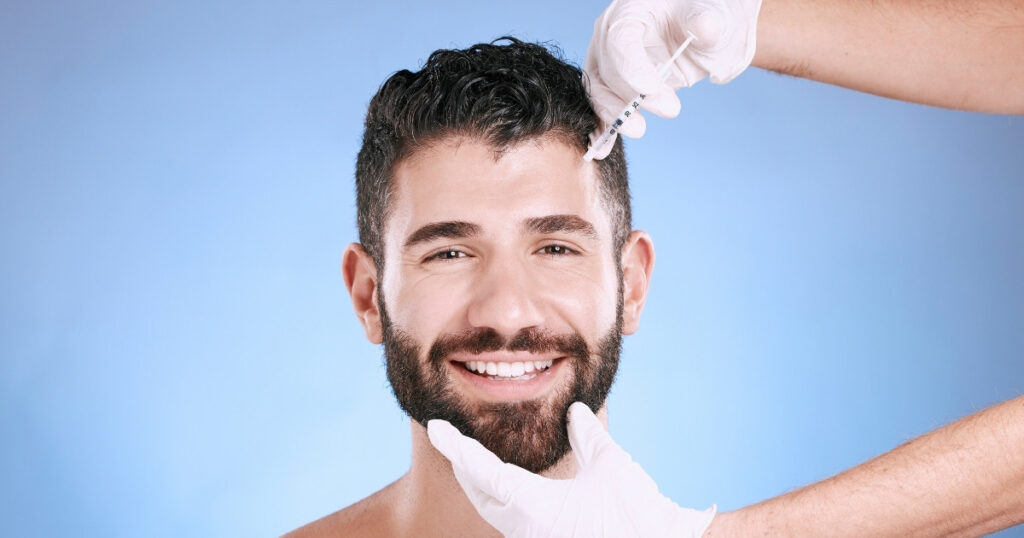
When considering Botox for smile lines, it’s essential to be aware of potential side effects, such as bruising, swelling, or asymmetry. Although rare, more severe complications can occur and should be discussed with a healthcare provider. Selecting a licensed and experienced practitioner is crucial for minimising risks and ensuring safety.
- Side Effects: Common side effects include temporary bruising and discomfort.
- Practitioner Choice: Always choose a qualified and experienced injector.
- Informed Consent: Understand all potential risks before undergoing treatment.
- Regulatory Approval: Botox is FDA-approved for specific cosmetic uses, but off-label use requires caution.
- Follow-Up Care: Proper aftercare can mitigate side effects and enhance outcomes.
- Safety Protocols: Clinics should follow strict safety protocols to ensure patient well-being.
Comparing Botox to Other Treatments for Smile Lines
Botox offers non-invasive solutions to removing smile lines, contrasting with surgical procedures like facelifts Procedure. Compared to dermal fillers, which add volume to wrinkles, Botox specifically addresses the muscle activity that causes these lines.
However, the preference for Botox or alternative treatments depends on the individual’s skin type, the severity of the lines, and the desired longevity of results.
| Treatment | Action | Duration | Invasiveness | Recovery | Side Effects | Cost (AED) |
| Botox | Blocks muscle movement | 3-6 months | Non-surgical | None | Bruising, headache | 500 – 1,750 |
| Dermal Fillers | Adds volume, stimulates collagen | 6-18 months | Non-surgical | Minimal | Swelling, lumps | 750 – 2,500 |
| Chemical Peels | Removes outer skin layers | Variable | Non-surgical | Days | Redness, peeling | 300 – 3,000 |
| Laser Resurfacing | Removes skin layers with light | Months-years | Minimally invasive | Days | Redness, swelling | 2,500 – 12,500 |
| Microneedling | Stimulates collagen with needles | Up to 6 months | Non-surgical | 1-2 days | Irritation | 500 – 1,500 |
| Facelift | Surgically tightens facial skin | 5-10 years | Surgical | Weeks | Scarring, nerve injury | 20,000 – 50,000 |
This table provides a streamlined comparison of various treatments for smile lines, summarising their primary action, the typical duration of their effects, the level of invasiveness, the expected recovery time, common side effects, and an approximate cost range in Dubai.
Post-Botox Care: Ensuring the Best Results for Smile Lines
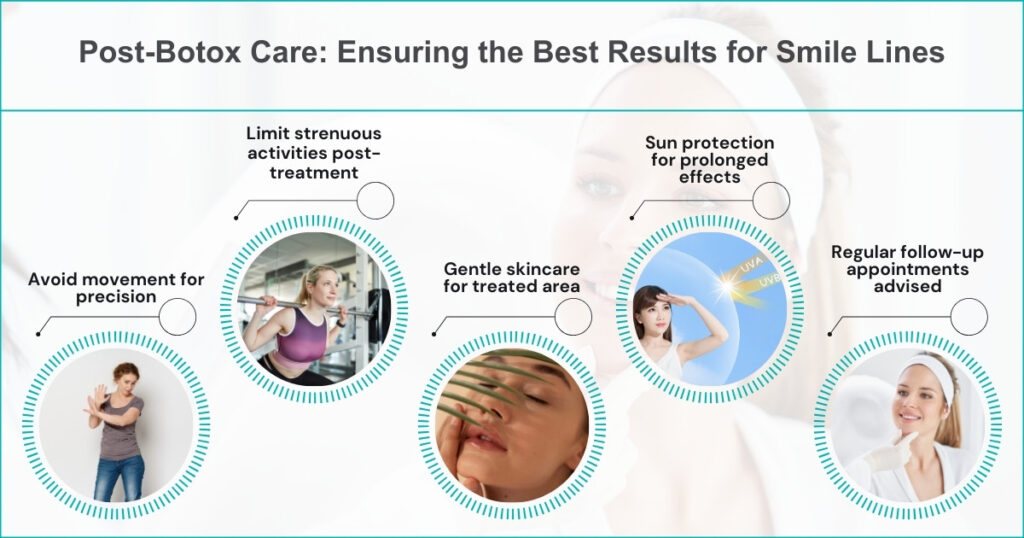
Optimal post-botox care is crucial for maximising the treatment’s efficacy and longevity. Avoiding strenuous exercise and excessive heat exposure for the first 24 hours can prevent the spread of Botox to unintended muscles.
Also, staying upright for a few hours post-treatment and avoiding massaging the area ensures the Botox stays localised, enhancing its effectiveness on smile lines.
- Immediate Aftercare: Avoid manipulating the treated area to maintain the precision of the injection sites.
- Activity Restrictions: Refraining from vigorous activities helps stabilise the Botox application.
- Skin Care Regimen: Gentle skincare is recommended to avoid unnecessary pressure on the Treated muscles.
- Sun Exposure: Protecting the skin from sun damage can prolong the positive effects of Botox.
- Follow-up appointments: Scheduled check-ups enable practitioners to assess the progress and plan future treatments.
- Recognising Complications: Early detection of any adverse reactions can mitigate potential risks.
- Patient Education: Understanding the dos and don’ts following Botox injections contributes to achieving desired outcomes.
Combining Botox with Other Treatments for Smile Lines: A Comprehensive Approach
Combining Botox with other aesthetic treatments can address multiple aspects of ageing, providing a comprehensive solution to smile lines. Utilising Botox to relax the muscles and dermal fillers to restore lost volume can synergistically enhance the skin’s smoothness. A tailored approach, considering individual skin types and ageing patterns, ensures the best combination of treatments for optimal results.
- Holistic Treatment Strategy: A multi-faceted approach addresses muscle activity and skin volume.
- Personalised Care Plans: Treatments are often customisable to address unique facial features and concerns.
- Combination of Procedures: Botox and fillers can provide more pronounced and longer-lasting results when combined.
- Sequential Treatment Sessions: Proper timing between treatments is crucial for safety and efficacy.
- Diverse Ageing Signs: A combination approach can simultaneously target various signs of ageing.
- Professional Guidance Required: Only qualified practitioners should devise and administer combination treatment plans.
- Clear communication about anticipated results is essential to patient satisfaction.
The Cost Factor: Investing in Botox for Smile Lines

The cost of Botox treatment for smile lines is influenced by the number of units required, practitioner fees, and geographic location. While the initial outlay may seem significant, the investment can be justified by the effectiveness and duration of the results. Regular maintenance sessions are necessary, and these should be factored into the overall long-term cost.
| Item | Cost Factor | Average Price Range | Frequency | Notes |
| Initial Consultation | Professional assessment | $50-$100 | One-time | Necessary for a tailored Botox plan |
| Botox per Unit | Active ingredient pricing | $10-$20 per unit | Every 3-6 months | Varies by the area and number of units needed |
| Practitioner Fee | Service charges | $100-$400 | Per session | Influenced by practitioner’s expertise |
| Facility Charges | Clinic overheads | $50-$200 | Per session | It depends on the clinic’s location and prestige |
| Follow-Up Visits | Post-treatment assessment | $0-$100 | As needed | Some clinics include this in the treatment cost |
| Maintenance | Ongoing treatments | The cost of the initial session is repeated | Every 3-6 months | Essential for sustained results |
Longevity of Botox Results: How Long Can Smile Lines Stay Away?
The effects of Botox on smile lines typically last between three to six months, depending on individual factors such as muscle strength and metabolism. However, regular maintenance sessions are required to sustain the results.
The longevity of the effects can also be influenced by the patient’s lifestyle and adherence to aftercare instructions.
- Typical Duration: Botox effects generally last a few months.
- Maintenance Sessions: Regular treatments are necessary for prolonged results.
- Individual Factors: Metabolism and muscle usage can affect longevity.
- Lifestyle Impact: Sun exposure and smoking can shorten the duration of effects.
- Aftercare Importance: Following post-treatment instructions can prolong results.
- : Patients should have a realistic understanding of treatment duration.
The query “Can Botox remove smile lines?” is met with a multifaceted answer that extends beyond a simple yes or no. Our investigation reveals that while Botox is a potent ally against smile lines, its ultimate success depends on meticulous aftercare, periodic maintenance, and possibly adjunctive therapies for optimal results.
Dr. Tarek Bayazid enjoys a reputation as a leading plastic surgeon, especially in facial rejuvenation and body contouring, strengthened by his solid educational background and membership in prestigious international societies. His signature use of the original advanced approach of the “composite deep plane facelift” and his minimally invasive techniques affirm his position as a purveyor of quality and natural aesthetics.
Are you ready to improve your smile? Book a Consultation with Dr. Tarek Bayazid.
